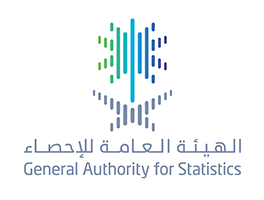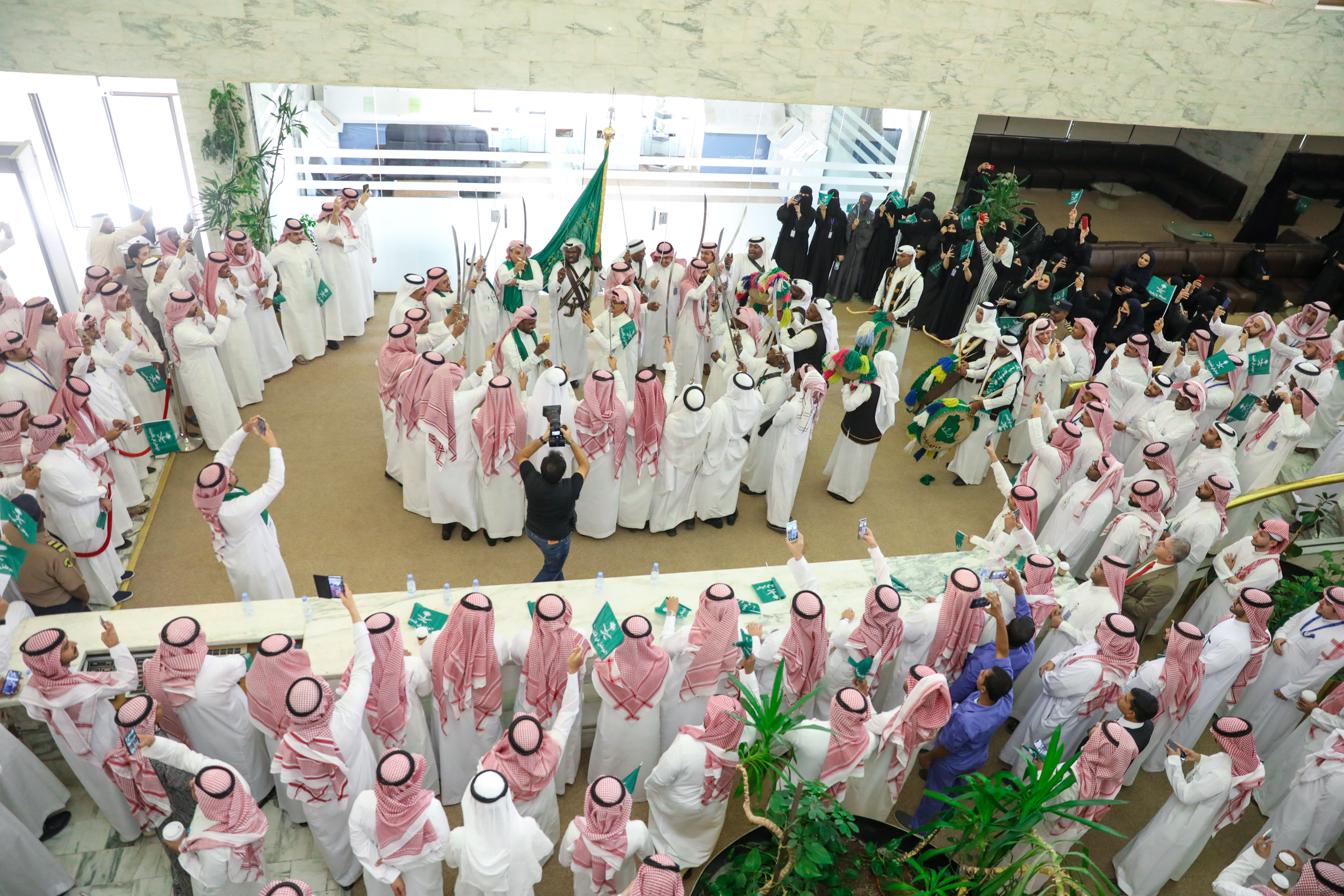Official government website of the Government of the Kingdom of Saudi Arabia
Links to official Saudi websites end withgov.sa
All links to official websites of government agencies in the Kingdom ofSaudi Arabia end with .gov.sa
Government websites use theHTTPSprotocol for encryption and security.
Secure websites in the Kingdom of Saudi Arabia use the HTTPS protocolfor encryption.

Spokesman of GASTAT: success partners are welcome to work in the 2020 Census
23-10-2019
“GASTAT” Releases the Results of the Household Energy Survey, 2019
10-10-2019
The General Authority for Statistics (GASTAT) released the results of the “Household Energy Survey (2019)” on its official website www.stats.gov.sa. It is a field survey that collects data of household energy from a sample of households covering all 13 administrative regions in the Kingdom. The survey provides data on the type of housing, its components, the areas that are air-conditioned and heated, and data on household uses of fuel of all kinds, in addition to identifying the patterns of energy consumption and the forms of energy used in the domestic sector. The results of the household energy survey showed that (100%) of households use electricity in their houses. (99.50%) of their houses are connected to the public electricity network. However, (0.38 %) use a private network as a source for electricity, while (0.12 %) use a generator as a source of electricity, the results also showed that the percentage of households using solar energy at homes reached (1.60 %). The results also showed that the percentage of households using an independent electric meter reached (85.29 %), while (14.71 %) are using an electric meter shared with other houses, whereas (18.01 %) use power regulator at home. Regarding the use of fuel in cooking, the results showed that about (89.34 %) of households use gas as the main source of fuel for cooking, while (10.18 %) of households use electricity for cooking. In addition, (0.30 %) of households use wood as a main source of fuel for cooking. The results also showed that (8.64 %) of households use (wood, coal and agricultural waste). However, the use of wood at home for heating and cooking reached (12.73%). Regarding the patterns and behavior of households in the rationalization of power consumption, the results showed that (55.29 %) of households are interested in cutting expenses or rationalizing power consumption. The results also showed that (37.69 %) of households are likely interested in power consumption rationalization while only (7.02 %) of households are not interested at all in cutting expenses or rationalizing power consumption. Moreover, the results revealed that (36.30%) of households have power savers at their houses while (63.70 %) of households do not have power savers to rationalize consumption. Furthermore, the results of the Household Energy Survey demonstrated that the total consumption of household fuel (fuel oil), kerosene and LPG reached more than 1 billion liters (1,049,620,514) in all regions of the Kingdom. The volume of consumption of diesel (fuel oil) reached about (4,246,564) four million and two hundred and forty-six thousands five hundred and sixty-four liters, which represents about (0.40 %) of total consumption volume, while the consumption of gas (kerosene) reached more than nineteen million L (19,539, 976) representing about 1.87 % of the total size of consumption. The size of gas consumption (LPG) reached over one billion liters (1,025,833,974), representing (97.73%) of the total size of consumption. In addition, The results indicated that (22.15%) of households in the Kingdom spend less than 5% of their income on electricity and other sources of fuel, while (34.49%) spend between (5-10%) of their income, while (22.53%) of households spend between (15-11%) of their income and (13.62%) Spend between (20-16%) of their income on electricity and other sources of fuel, while we found that (7.21%) of households spend more than (20%) of their income. It is worth mentioning that the Household Energy Survey, 2019 is the third survey conducted by the General Authority for Statistics on an annual basis since 2017.

الهيئة العامة للإحصاء تصدر نتائج "مسح الإنتاج الزراعي" ثالث المسوح الزراعية الجديدة
03-10-2019

The employees of the General Authority for Statistics celebrate the 89th National Day
01-10-2019

Spokesman of GASTAT: success partners are welcome to work in the 2020 Census
23-10-2019
“GASTAT” Releases the Results of the Household Energy Survey, 2019
10-10-2019
The General Authority for Statistics (GASTAT) released the results of the “Household Energy Survey (2019)” on its official website www.stats.gov.sa. It is a field survey that collects data of household energy from a sample of households covering all 13 administrative regions in the Kingdom. The survey provides data on the type of housing, its components, the areas that are air-conditioned and heated, and data on household uses of fuel of all kinds, in addition to identifying the patterns of energy consumption and the forms of energy used in the domestic sector. The results of the household energy survey showed that (100%) of households use electricity in their houses. (99.50%) of their houses are connected to the public electricity network. However, (0.38 %) use a private network as a source for electricity, while (0.12 %) use a generator as a source of electricity, the results also showed that the percentage of households using solar energy at homes reached (1.60 %). The results also showed that the percentage of households using an independent electric meter reached (85.29 %), while (14.71 %) are using an electric meter shared with other houses, whereas (18.01 %) use power regulator at home. Regarding the use of fuel in cooking, the results showed that about (89.34 %) of households use gas as the main source of fuel for cooking, while (10.18 %) of households use electricity for cooking. In addition, (0.30 %) of households use wood as a main source of fuel for cooking. The results also showed that (8.64 %) of households use (wood, coal and agricultural waste). However, the use of wood at home for heating and cooking reached (12.73%). Regarding the patterns and behavior of households in the rationalization of power consumption, the results showed that (55.29 %) of households are interested in cutting expenses or rationalizing power consumption. The results also showed that (37.69 %) of households are likely interested in power consumption rationalization while only (7.02 %) of households are not interested at all in cutting expenses or rationalizing power consumption. Moreover, the results revealed that (36.30%) of households have power savers at their houses while (63.70 %) of households do not have power savers to rationalize consumption. Furthermore, the results of the Household Energy Survey demonstrated that the total consumption of household fuel (fuel oil), kerosene and LPG reached more than 1 billion liters (1,049,620,514) in all regions of the Kingdom. The volume of consumption of diesel (fuel oil) reached about (4,246,564) four million and two hundred and forty-six thousands five hundred and sixty-four liters, which represents about (0.40 %) of total consumption volume, while the consumption of gas (kerosene) reached more than nineteen million L (19,539, 976) representing about 1.87 % of the total size of consumption. The size of gas consumption (LPG) reached over one billion liters (1,025,833,974), representing (97.73%) of the total size of consumption. In addition, The results indicated that (22.15%) of households in the Kingdom spend less than 5% of their income on electricity and other sources of fuel, while (34.49%) spend between (5-10%) of their income, while (22.53%) of households spend between (15-11%) of their income and (13.62%) Spend between (20-16%) of their income on electricity and other sources of fuel, while we found that (7.21%) of households spend more than (20%) of their income. It is worth mentioning that the Household Energy Survey, 2019 is the third survey conducted by the General Authority for Statistics on an annual basis since 2017.

الهيئة العامة للإحصاء تصدر نتائج "مسح الإنتاج الزراعي" ثالث المسوح الزراعية الجديدة
03-10-2019

The employees of the General Authority for Statistics celebrate the 89th National Day
01-10-2019